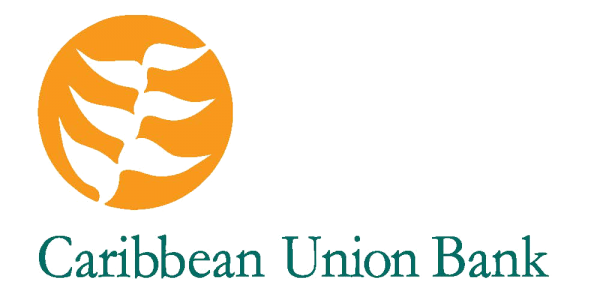Your Privacy
Caribbean Union Bank is committed to protecting your privacy when you visit our website. All Information you share with us will be treated with the strictest confidentially at all times.
Your personal information will not be disclosed outside the Caribbean Union Bank, except in circumstances advised to you at the time you apply for a product or service
What we do
How Caribbean Union Internet Banking services provides a safe and secure online banking experience.
What you can do
Tips on how you can make sure your confidential account information is protected.
Communicating securely
- Our e-mail policies and what you can do to avoid e-mail fraud
- Helpful resources
- Up-to-date Internet browsers, anti-virus software and firewall software
- Want to know more? Try our frequently asked questions
What we do
We take your online security extremely seriously. The questions and answers below will give you some of an idea of the steps Caribbean Union take to protect your financial and personal information.
- we use secure 128-bit encryption-one of the highest forms of encryption technology available today.
- we have firewalls and stringent internal access procedures to guard our systems from hackers
- we monitor all internal systems to ensure security
- we perform regular and independent audits on our computer banking systems to ensure that security meets or exceeds banking standards
Microsoft Windows Microsoft Internet Explorer 5.5 or higher Netscape Navigator 7.0 or higher Macintosh OS Microsoft Internet Explorer 5.5 or higher Apple Safari 1.0 or higher
Online Surveys
Caribbean Union Internet Banking may randomly present surveys to visitors of our web site. The survey data is collected anonymously and is used to help improve our services. We do not use the survey data for marketing purposes, and you are not required to complete online surveys.Online Offers
Caribbean Union Internet Banking may present product and service offers to you when visiting our web site. You can choose to accept these offers, decline them, or view them at a later time. You are not required to accept online offers.Online Advertising
Caribbean Union Internet Banking sometimes places online ads on web sites that are not affiliated with Caribbean Union Bank. If you select one of these ads, Caribbean Union Internet Banking may track the response rate and the web site activity associated with each ad. The response rate data is collected anonymously, and is used to help us plan future online advertising campaigns.Website Activity
Caribbean Union Internet Banking monitors web site activity to better understand the needs of our visitors and to improve our services. For more information on how Caribbean Union Internet Banking tracks web site activity, please see our section about . Your information is obtained or used only with your consent We obtain your consent before we:- obtain a credit report
- offer you other products and services
- send you information about products and services by means of direct marketing
- provided it is legally permitted, share your information in confidence within the Caribbean Union Bank
- obtain, use or disclose to other persons, information about you unless we are obliged to do so by law or to protect our interests
- use your information in any way we didn't tell you about previously
- Select "Edit" in the browser menu bar.
- Select "Preferences".
- Select the box next to the "Advanced" option in the Category list on the left side of the Preferences window.
- Select the "Cache" option.
- To remove all files currently in your memory cache, select "Clear Memory Cache" or "Clear Cache". If you have an earlier version of Netscape, you will see a "Clear Disk Cache" button. Select this button and then select "OK". If you do not see this button, your disk cache was cleared when you selected the "Clear Cache" button.
- Select "OK" to return to your browser.
- Select "Tools" from the browser menu bar.
- Select "Internet Options".
- Select the "General" tab at the top of the Internet Options window.
- Select the "Delete Files" button in the "Temporary Internet Files" box.
- Select "OK".
- Select "OK" to return to your browser.
What you can do
We are committed to ensuring your security and privacy and we take strong security measures to protect your information. However, there are also some important steps you can take as a customer. You can use the information below as a guide to help you protect yourself online.
- keep your account information and password confidential
- don't leave your account information or password in an open area where a passerby might see it
- before entering personal information on a web site, check that your web session is secure by looking for a small lock symbol in the lower corner of your web browser window. A closed lock indicates the web site you are on is secure. You can also look for the letters "https://" at the beginning of your web site address in your web browser. The "s" means that the web connection is secure.
- never leave your computer screen unattended while in the secure banking area of the site
- always sign off your online accounts and close your browser if you're going to step away from your computer
- don't send privileged account information (account number, password, etc.) via e-mail
- try not to use passwords that incorporate your name, telephone number, address or birth date or those of any close friend or relative
- change your password monthly; don't reuse the same password for at least one year.
- don't use a password you use for anything else
- don't use any part of your Caribbean Union Bank Card number as your password.
- use a quality anti-virus program as often as possible
- avoid doing your online banking on public computers (for example, at libraries and Internet cafes)
- frequently check the most current information about your browser (can be found at your browser's web site) for changes and upgrades
- regularly check for security updates from your software/browser vendor(s)
Passwords tips:
- never share your pas
- swords with others, including family members
- never give your password to a third party such as a payment service provider as this places your financial information at risk don't use obvious passwords like your name, names of family members, your address, or any other information that might be found in your purse or wallet
- try to avoid passwords that are real words
- make it difficult for others to guess your password by ensuring it contains a combination of letters and numbers
- avoid using the same password for several accounts or services — you should use a unique password for each web site and purpose
- change your passwords frequently
- if you think someone knows your password, change it immediately.


